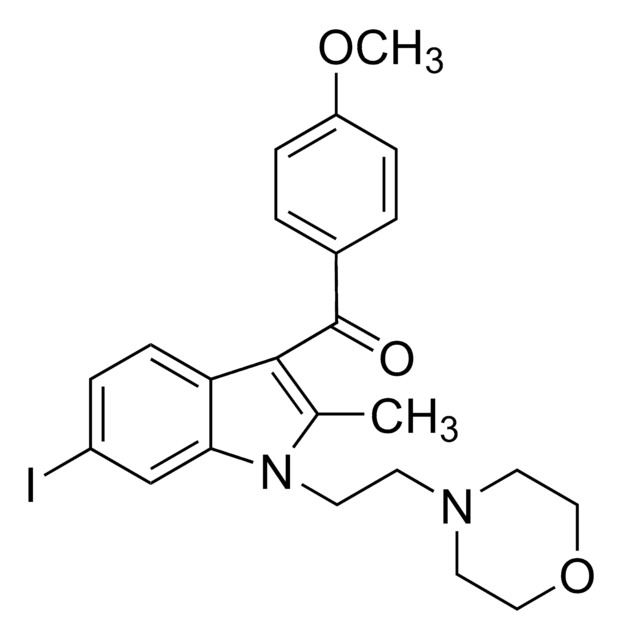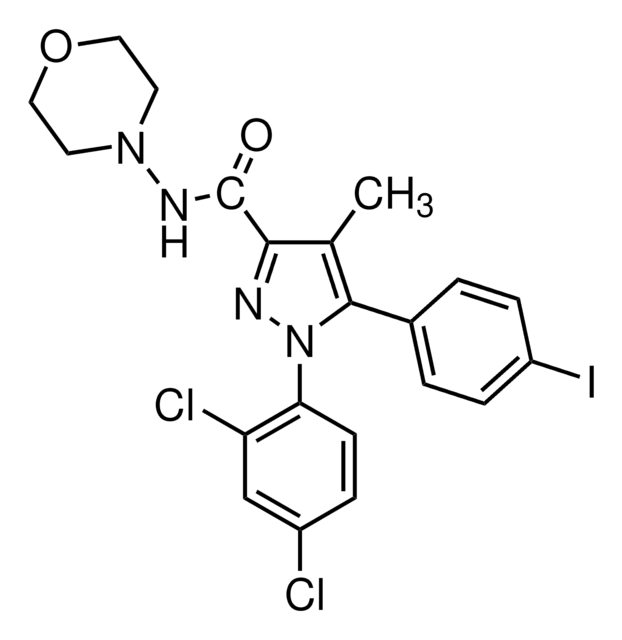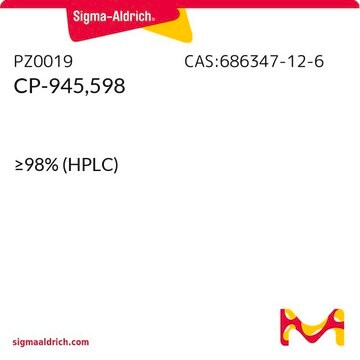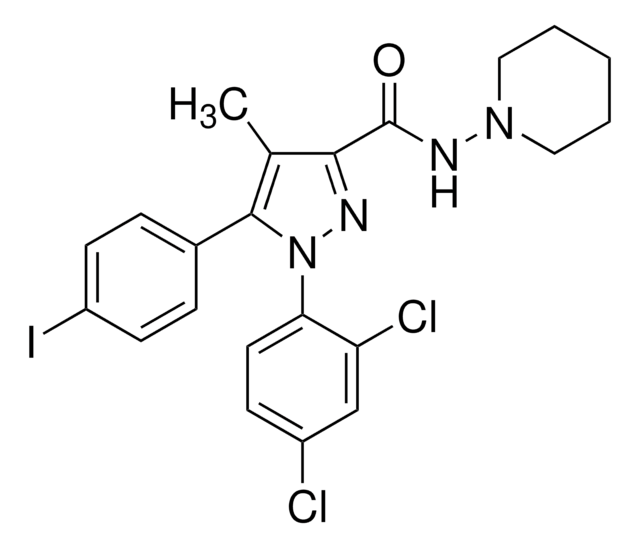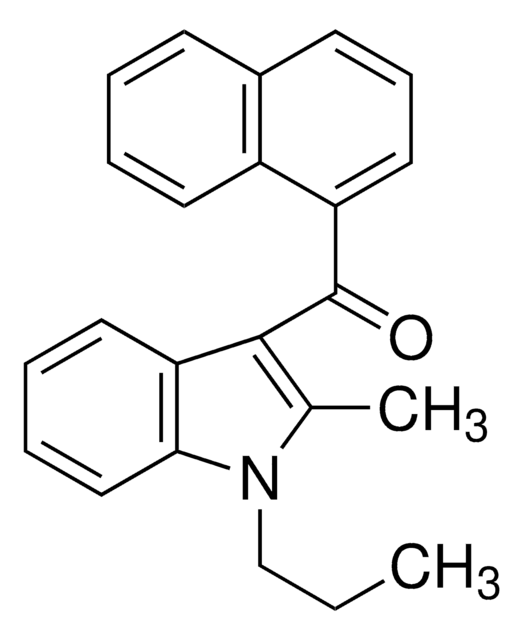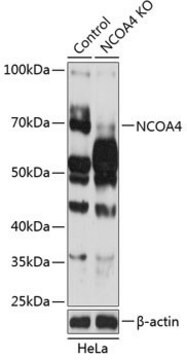A6478
(R,S)-AM1241
≥98% (HPLC), solid
Synonym(s):
(R,S)-3-(2-Iodo-5-nitrobenzoyl)-1-(1-methyl-2-piperidinylmethyl)-1H-indole
About This Item
Recommended Products
Quality Level
assay
≥98% (HPLC)
form
solid
drug control
regulated under CDSA - not available from Sigma-Aldrich Canada
color
yellow
solubility
DMSO: ~18 mg/mL at 60 °C
SMILES string
CN1CCCCC1Cn2cc(C(=O)c3cc(ccc3I)[N+]([O-])=O)c4ccccc24
InChI
1S/C22H22IN3O3/c1-24-11-5-4-6-16(24)13-25-14-19(17-7-2-3-8-21(17)25)22(27)18-12-15(26(28)29)9-10-20(18)23/h2-3,7-10,12,14,16H,4-6,11,13H2,1H3
InChI key
ZUHIXXCLLBMBDW-UHFFFAOYSA-N
Application
- to study its inhibitory effect on bone cancer-induced pain and bone loss
- to study the effect of its interaction with 17βestradiol on proliferation activity in primary human osteoblasts
- to evaluate the sites of CB2 mediated antinociception in vivo.
Biochem/physiol Actions
signalword
Danger
hcodes
Hazard Classifications
Eye Irrit. 2 - Resp. Sens. 1 - Skin Irrit. 2 - STOT SE 3
target_organs
Respiratory system
Storage Class
11 - Combustible Solids
wgk_germany
WGK 3
flash_point_f
Not applicable
flash_point_c
Not applicable
ppe
dust mask type N95 (US), Eyeshields, Faceshields, Gloves
Choose from one of the most recent versions:
Already Own This Product?
Find documentation for the products that you have recently purchased in the Document Library.
Our team of scientists has experience in all areas of research including Life Science, Material Science, Chemical Synthesis, Chromatography, Analytical and many others.
Contact Technical Service